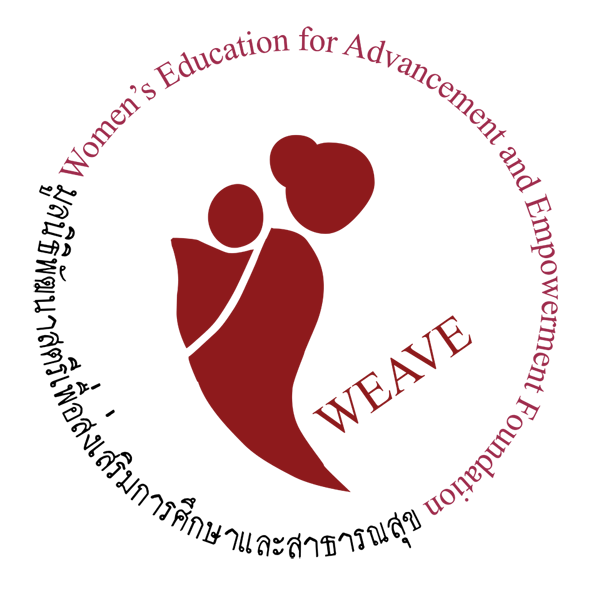For over 10 years, Naw Tha Blay Paw has lived in Umpiem Mai Camp, her second refugee camp. Her hometown is in Karen State, Burma, but she fled to Thailand after being continually harassed by the Burmese military looking for her brother, a supporter of the Karen separatist revolution. The harassment took its toll, making her fearful for her own safety, as well as for that of her family.
Studies have shown that the constant threat of harm to individuals or their family members causes anxiety, depression and distrust of people around them and weakens people’s ability to focus on their daily lives, including jobs and income. The Burmese military regime uses such tactics to oppress and control its people. For Naw Tha Blay Paw, she could no longer endure the threats and escaped on foot, taking four days and staying overnight in villages on the way.
When she arrived in the camp she “felt safe and had food”. Yet she couldn’t leave the camp and didn’t have anything to do to remain active during the day.
She was eager to join WEAVE’s Income Generation Project (IGP) when it began in 1996. She could use her sewing skills, an advantage purposely included as part of IGP’s design to build on the skills and traditional designs from Karen and Karenni culture. IGP seeks to empower Karen and Karenni refugees to generate their own income making handicrafts.
Her work provides her with a purpose every day and connects her to a supportive group of women with which to share experiences and memories, both happy and haunting.
With her home business, she first used her earnings for her three children’s school needs, such as uniforms and extra books and pens. Now that they are finished school, she contributes 10% for her church tithing (approximately 65% of Karen refugees are Christians) and uses the remaining funds for extra food like fish and salt.
For Naw Tha Blay Paw, wearing a beautiful green jacket she made herself, another added benefit of being part of IGP is the sense of pride and confidence she gains making the high quality products sold in WEAVE’s fair trade shops. She boasts that the handcrafted goods “are different than others, which are made by machine and are low quality,” referring to products available in markets and small shops along the Thai-Burma border.
IGP has brought her the opportunity to become a leader, joining the Quality Control team to gather more women to join the program, and teach them skills to earn income.
She wants people to understand that, “we don’t have chances to go out- there is no other work to save our lives, so we want people to support us.” To date, over 1,000 women have been trained in IGP and over 500 women have become home-based entrepreneurs.
As for the future of the camp, Naw Tha Blay Paw doesn’t expect to stay in the camp forever because she “doesn’t see a future here.” Refugees in the camps do not know what the future will hold. She misses her birthplace and would like to return.
Yet as the Karen and other ethnic peoples continue to face many human rights abuses in their home country, the prospect of returning to a safe Burma is bleak. Harassment, rape, burning of villages and forced labor are among other tactics used by the military to oppress ethnic groups. This means that even if displaced persons return, their family and communities are likely gone.
Her comments reveal just some of the complexities displaced persons from Burma face, especially women. These problems won’t be easily solved. However, through WEAVE’s Income Generation Project, Naw Tha Blay Paw has the chance to regain a sense of security, empower others and work toward more permanent solutions, with hope for the future.
About WEAVE (Women’s Education for Advancement and Empowerment)
Founded in 1990, WEAVE is a non-profit organization that helps and supports the needs of marginalized women along the Thai-Burma border. WEAVE advances the status of women and children to become socially, economically and politically empowered. Through programs for education and capacity development, WEAVE’s goal is to elevate women and children from poverty and vulnerability, to self-sufficiency and hope. www.weave-women.org
Names and some other identifying details have been changed to protect identities.
(By Sarah Matsushita)

